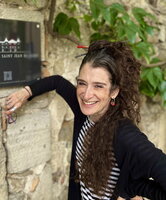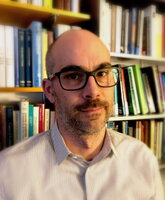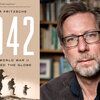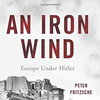
The Department of History offers a vital and innovative course of study in Modern European history, a field which has been at the center of teaching and research at University of Illinois for over one hundred years.
The program emphasizes comparative and interdisciplinary perspectives in addition to national area studies. Traditional strengths in British, German, and French history are complemented by research approaches that examine collective identities such as class, nation, and gender, collective memory, the organization of power and categories of culture, the formation of intellectual life, the uses of violence, the contours of everyday life and private life, colonial and postcolonial interactions, and the politics of representation. Recent courses focused on comparative topics: "Cities," "Memory and History," "History and Postcolonial Studies," "Europeans and Nature, 1750-1900," and "European Travellers in North America."
Graduate students are encouraged to ground themselves in historical theory and methods, to gain teaching experience as assistants, and to undertake field research. Close collaboration binds modern Europeanists with their counterparts in allied fields such as Russian history, East European history, British and Empire history, and Early Modern history as well as disciplines such as anthropology and comparative literature. Students typically travel to Europe to pursue predissertation research at the end of their second year and formulate dissertation topics and apply for dissertation research grants in their third year. In the last years, graduate students at Illinois have regularly received predissertation grants from the Council for European Studies and dissertation grants from the Social Science Research Council and the German Academic Exchange Service.
Other Resources
Dissertations Completed in Modern European History since 1990
- Katherine Aaslestad, "The Transformation of Civic Identity and Local Patriotism in Hamurg, 1790-1815," Ph.D. 1997 (DAAD)
- David Bielanski, "Frontline Weimar: Paramilitary Mobilization and Masculine Representation in Postwar Germany", Ph.D. 2002 (DAAD)
- Amanda Brian, "Growing Children: The Child's Body and the German Empire, 1871-1918," Ph.D 2009 (Fulbright-Hayes)
- Everett Carter, "King, Queen, Knave: Gambling and Social Herarchy in Nineteenth Century Germany," Ph.D. 2002
- Andrew Demshuk, "The Lost East Silesian Expelles in West Germany and the Fantasy of Return, 1945-1970," PhD 2010 (DDA,FLAS)
- Alex d'Erizans, "The Strangeness of Home: German Search for Identity amidst Trauma and Catastrophe in Hannover, 1945-1949," Ph.D 2006 (DAAD)
- Sace Elder, "Murder Scenes: Criminal Violence in the Public Culture and Private Lives of Weimar Berlin," Ph.D. 2002 (DAAD, SSRC/Berlin)
- Bryan Ganaway, "Miniature Technologies: Toys and the Simulation of Nation, Gender, and Self in Wilhelmine Germany," Ph.D. 2002 (DAAD, Fulbright)
- Jason Hansen, "Where Lies Germany: Science and the Visualization of the German Nation," 1848-1914, PhD 2010
- Jonathan Huener, "German Deeds, Polish Soil, Jewish Shoah: Auschwitz Memory and the Politics of Commemoration," Ph.D 1997 (DAAD, SSRC/Berlin,
FulbrightHayes) - Victor Libet, "Building the Border: The Treatment of Immigrants in France, 1884-1914," Ph.D. 1998 (Chateaubriand, DAAD)
- Brent Maner, "The Search for Buried Nation: Prehistoric Archaeology in Germany, 1780-1890," Ph.D. 2001 (CES, SSRC/Berlin)
- Michele May, "The Republic and Its Children: French Children's Literature, 1855-1900," Phd 2010
- Elise Moentmann, "Conservative Modernism at the 1937 International Exposition in Paris," Ph.D 1998
- Will Morris, "Gegenwartsbewältigung: Drugs, Users, and the Making of Postwar West Germany, 1968-1983," Ph.D 2008 (DAAD)
- David Murphy, "The Heroic Earth: The Flowering of Geopolitical Thought in Weimar Germany," Ph.D 1992 (DAAD, SSRC/Berlin)
- H. Glenn Penny, "Cosmopolitan Visions and Municipal Displays: Museums, Markets, and the Ethnographic Project in Germany, 1868-1914," Ph.D 1998 (CES,DAAD, SSRC/Berlin, Institut fuer europaeische Geschichte)
- Joseph Perry, "The Private Life of the Nation: Christmas and the Invention of Modern Germany," PhD 1999 (CES, DAAD)
- Thilo Schimmel, "Shop Floor Politics Under Socialism: Worker Identity, Rationalization, and Company Culture in (East) Germany, 1920-1996," Ph.D 2008 (UIUC research fellowship)
- Jeffrey Smith, "A People's War: The Transformation of German Politics, 1913-1918," Ph.D 1996 (DAAD)
- Jason Tebbe, "Rituals of Memory: The Construction of Family in Wilhelmine Germany," Ph.D 2006 (UIUC Research Fellowship)
- Molly Wilkinson, "Sports, Mass Mobilization, and the Everyday Culture of Socialism in East Germany in the 1950s," Ph.D. 2003 (CES, DAAD, SSRC/Berlin)
- Kristen Ehrenberger, "The Politics of The Table: Nutrition and The Telescopic Body in Saxon Germany, 1890-1935," Ph.D 2014
- Tyler Carrington, "Love in The Big City: Intimacy, Marriage, and Risk in Turn-Of-The-Century Berlin," Ph.D 2014
Dissertations in progress
-
Jeff Hayton, "Punk Rock and the Crisis of Authenticity in Post-1968 Germany," in progress (SSRCH, DAAD)
History Faculty working in Modern Europe








Related News

How 1942 was a global war without end

Professor Peter Fritzsche appointed Center for Advanced Study Professor

Were Hitler's generals loyal? Interview with professor Peter Fritzsche in Newsweek
